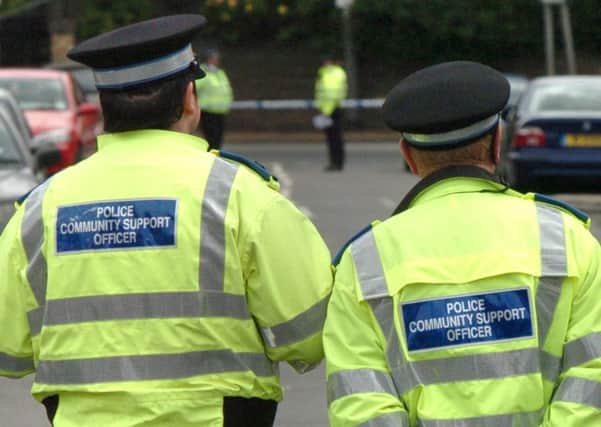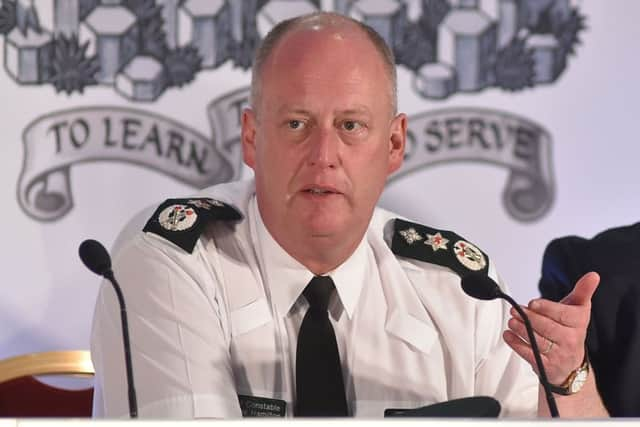'˜We want police chiefs to support us on ground'


He was speaking to the News Letter after Chief Constable George Hamilton was forced to make an apology over a late-night tweet suggesting officers overwhelmed by the job should “dry your eyes” or “move on”.
Yesterday an officer – Constable ‘Paul’ – told the News Letter Mr Hamilton’s comments were “very dismissive and very offensive” to officers on the ground doing the job and “giving their all”.
Advertisement
Hide AdAdvertisement
Hide AdThe officer’s remarks come as the News Letter publishes the top 10 stresses on junior officers and 10 action points that could address the issues, as supplied by the Police Federation which represents rank and file officers.


‘Paul’ said: “They feel a lot of what they do is undermined. For example in Belfast in June there were a significant number of calls that required no further action; calls to neighbourhood disputes or a drunk family member or criminal damage – people just wanting a log number for insurance claims.”
Chiefs then went back to see why 300 cases were closed with no further action.
“But these were decisions taken by the officer on the ground at the time using their own judgment.
Advertisement
Hide AdAdvertisement
Hide Ad“What we have now is micro-management to the nth degree by people from on high.


“Some sergeants are very good – but others don’t have a pick of work in them. They will sit in the office and micro-manage you but would never dream of going out with you to make an arrest.
“It is all about the statistics. But many of us enjoy being a bobby on the street. If you do something positive you can win over an entire estate. But this work is seen as ‘the lowest of the low’ and other officers may be ‘demoted’ to these teams as a form of discipline.”
At present he works on 10-hour variable shifts, which can be extended with overtime at short notice if more manpower is needed.
Advertisement
Hide AdAdvertisement
Hide AdThe preferred shift pattern for most constables is four days of 12-hour shifts followed by four days off, he said.
“Bosses don’t like this but they have never given us a proper reason why. But on the plus side it means very little overtime costs, less sick time and better morale.”
At present, Paul gets five or six days off per month which are random and change at short notice. “Your family life and sleeping patterns go to pot.”
Officers of inspector rank and above work 38 hours per week and the same shift pattern but their days off are ringfenced and rarely changed, Paul claims.
Advertisement
Hide AdAdvertisement
Hide Ad“Higher ranks such as superintendent or chief inspector and upwards are rarely seen in the station after 4.30pm or at weekends – and when you do see them they have no interest in you.
“Senior officers are constantly moving around to get experience for further promotion. They don’t care how you are getting on. It is the mind-set – it is about promotion and management.
“They have very good knowledge of legislation and the job but many of them are straight out of school and don’t know how to have a civil conversation with you. The attitude is, ‘I am the inspector’ or ‘I am the chief inspector and this is what is happening’.
“When we were training at Garnerville we were told we were all part of one big team – one big family. But as was highlighted in the Twitter conversation at the weekend, they just don’t seem to care.”
Advertisement
Hide AdAdvertisement
Hide AdThe officer who complained to Mr Hamilton said he spends too much time being a social worker, child minder, or looking after horses. But former Assistant Chief Constable Alan McQuillan told the BBC yesterday that these were all a normal part of the job.
Paul said he agreed to an extent, but said that when called to deal with suicide cases, a shortage of ambulances or A&E resources means he may have to care for such people for many hours.
“All we need and want is for bosses to support their people on the ground and to acknowledge that we matter as individuals,” Paul added.